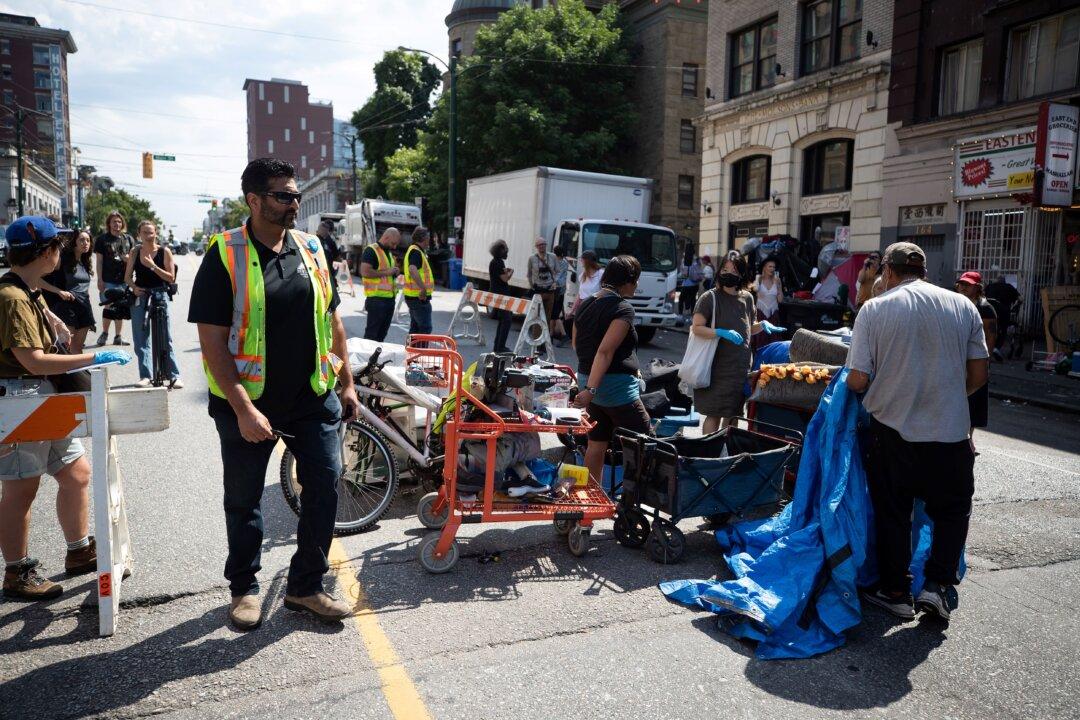“Vancouver Is Dying,” a documentary released by independent journalist and city resident Aaron Gunn, has garnered over 2 million views since it premiered on Oct. 7.
The one-hour film highlights the overdose crisis, increasing crime, public disorder, and homeless situation in Vancouver, and in particular criticizes what Gunn calls government “failed policies that have ravaged our downtown cores, especially Vancouver, over the past 20 years.”





